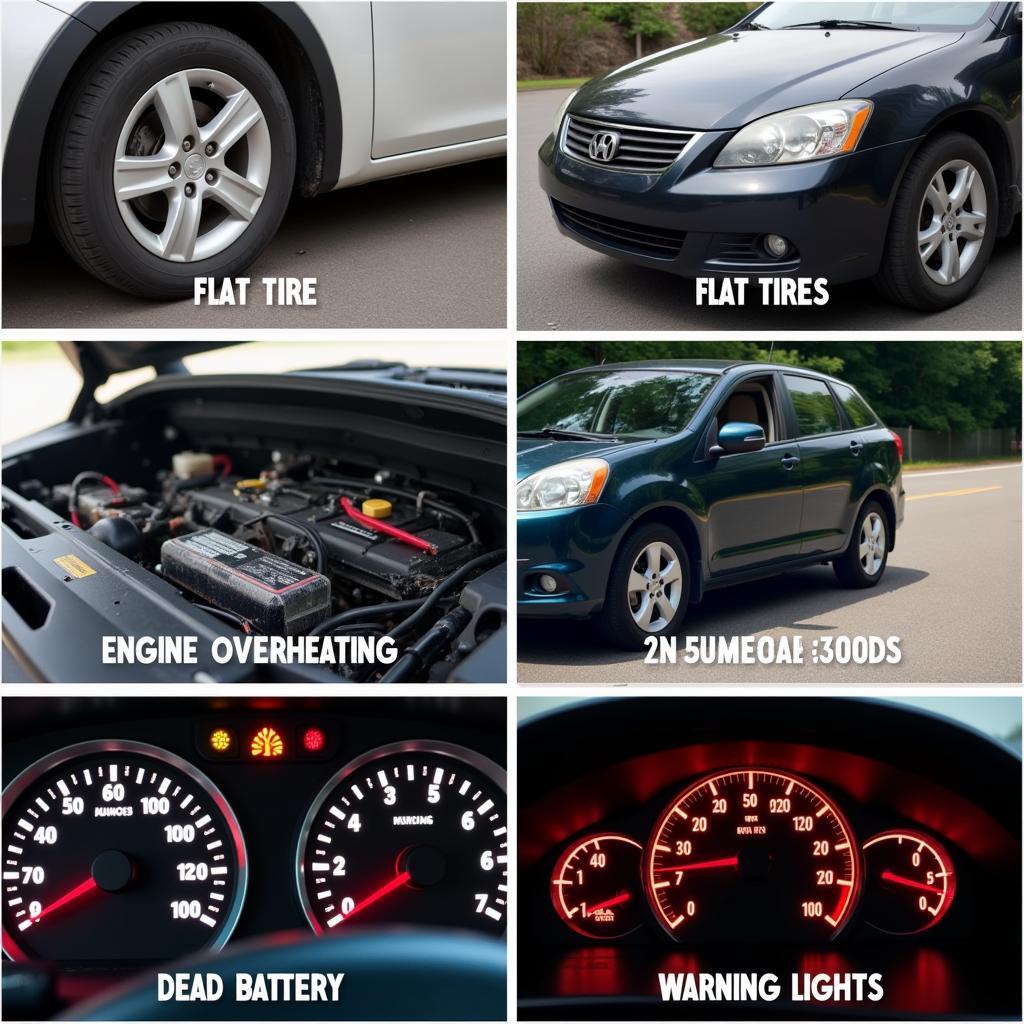Owning a car offers convenience and freedom, but it also comes with the responsibility of maintenance. A vehicle comprises complex mechanical and electrical systems, and like any intricate machine, things can go wrong. Whether you’re experiencing issues with your car or simply want to stay ahead of potential problems, this guide will provide valuable insights into common car problems and how to address them.
 Common Car Problems
Common Car Problems
Understanding Your Car’s Warning Signs
One of the first steps in troubleshooting car problems is recognizing the warning signs. Your car often communicates potential issues through various indicators:
- Dashboard Warning Lights: Modern vehicles have a range of warning lights on the dashboard, each signifying a specific issue. Pay attention to these lights and consult your owner’s manual to understand their meaning.
- Unusual Noises: Strange sounds like grinding, squealing, knocking, or hissing can indicate problems with brakes, belts, the engine, or other components.
- Fluid Leaks: Puddles under your car could indicate leaks in the engine oil, coolant, transmission fluid, or brake fluid, each requiring immediate attention.
- Performance Issues: Changes in your car’s performance, such as difficulty starting, rough idling, or decreased fuel efficiency, could signify underlying mechanical issues.
Common Car Problems and Solutions
While there’s a wide array of potential car issues, some problems are more common than others. Here are some frequently encountered car problems and potential solutions:
1. Battery Problems
A dead battery is a common car problem, often caused by old age, extreme temperatures, or leaving lights on.
Solutions:
- Jumpstart the battery: Use jumper cables and another vehicle to jumpstart your car.
- Replace the battery: If the battery is old or damaged, replacement is the best option.
2. Flat Tires
Flat tires can happen anytime, often caused by punctures from sharp objects or slow leaks.
Solutions:
- Change the tire: Learn how to use a car jack and lug wrench to change the flat tire with the spare.
- Repair the tire: In some cases, a punctured tire can be repaired at a tire shop.
 Car Maintenance Checklist
Car Maintenance Checklist
3. Overheating Engine
An overheating engine is a serious problem that can lead to engine damage if not addressed promptly.
Solutions:
- Turn off the engine: If you notice your engine overheating, pull over safely and turn off the engine immediately.
- Check coolant levels: Once the engine has cooled down, check the coolant levels and add more if needed.
- Seek professional help: If the problem persists, it’s crucial to have a mechanic diagnose and repair the issue.
4. Brake Problems
Brakes are crucial for safety, and any issues with them should be addressed immediately.
Solutions:
- Check brake fluid: Ensure the brake fluid reservoir is full.
- Inspect brake pads and rotors: Worn brake pads or rotors require replacement.
- Consult a mechanic: For complex brake issues, consult a qualified mechanic for diagnosis and repair.
5. Electrical Problems
Electrical problems can manifest in various ways, from malfunctioning lights to issues with the car’s computer system.
Solutions:
- Check fuses and relays: A blown fuse or faulty relay could be the culprit behind electrical issues.
- Inspect wiring and connections: Loose or damaged wiring can cause electrical malfunctions.
- Seek professional diagnosis: For complex electrical problems, it’s best to seek professional diagnosis and repair.
Preventing Future Problems: Regular Car Maintenance
While addressing problems as they arise is essential, preventing them through regular maintenance is key to a well-running vehicle.
Essential Maintenance Tasks:
- Regular oil and filter changes
- Tire rotations and pressure checks
- Brake inspections and fluid flushes
- Coolant flushes
- Air filter replacements
- Spark plug replacements
“Regular maintenance is cheaper than major repairs,” says John Smith, Senior Automotive Technician at ABC Auto Services. “By sticking to a maintenance schedule, you’re not just extending the life of your car, but also ensuring your safety on the road.”
When to Seek Professional Help
While some car problems can be addressed with basic troubleshooting, others require the expertise of qualified mechanics. Don’t hesitate to seek professional help if:
- You’re uncomfortable performing repairs yourself.
- The problem persists even after trying basic troubleshooting.
- The issue involves complex mechanical or electrical systems.
Conclusion
Understanding common car problems and how to address them can save you time, money, and stress. By being proactive with maintenance and addressing issues promptly, you can ensure your car runs smoothly for years to come. Remember, regular check-ups and timely repairs are not just about keeping your car in good condition but also about ensuring your safety and the safety of others on the road.
If you’re experiencing car troubles and need expert assistance, don’t hesitate to contact AutoTipPro for reliable and efficient car repair services.
Contact us:
Phone: +1 (641) 206-8880
Office: 500 N St Mary’s St, San Antonio, TX 78205, United States
Facing issues with your used car? Learn more about used car problems after purchase.





Leave a Reply